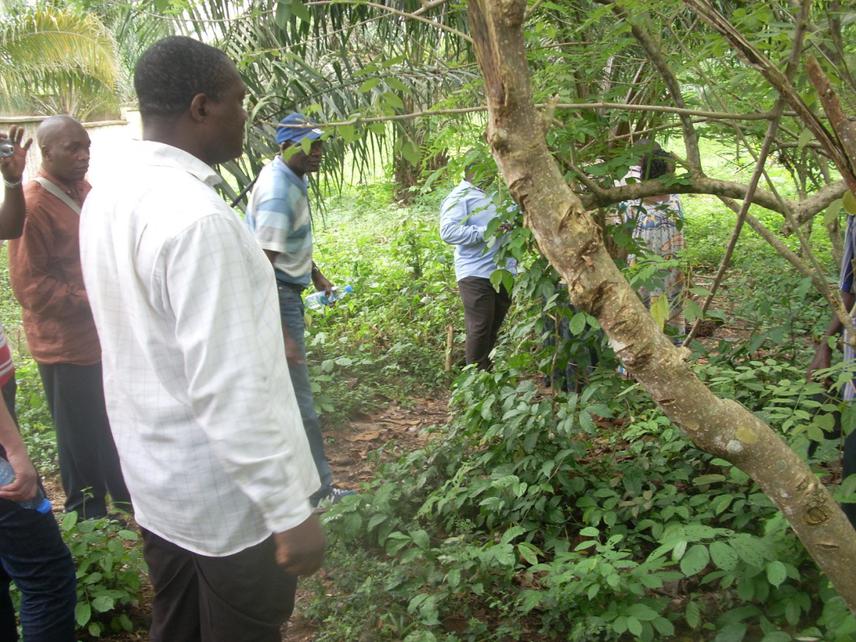Youndjie Koleoko Gabriel
Other projects
18 Jan 2012
Analog Forestry: Pathway for Biodiversity Conservation and Agro-Enterprise Development in Bafut, North West Cameroon
The aim of this project is to initiate activities to restore and protect three degraded watersheds in Bafut, NW Region, Cameroon for the provision of ecosystem services namely biodiversity, water and carbon.

Transporting tree seedlings to watershed.
The aim of this project is to initiate activities to restore and protect three degraded watersheds in Bafut, NW Region, Cameroon for the provision of ecosystem services namely biodiversity, water and carbon. The project is a replica of a similar one that took place in seven communities in Bui Division, NW Region of Cameroon from February 2008 to August 2010. These communities have similar environmental problems. The approach adopted is the analogue forestry ecosystem restoration methodology.
Unchecked deforestation leads to degradation and loss of ecosystem services especially biodiversity. In Cameroon montane and low land forests are under continuous threat following various deforestation drivers. Farmers abandon fields when they no longer render sufficient yields to justify their efforts and look for virgin land elsewhere. Analogue forestry is now seen as the only viable alternative as it focuses on the restoration of degraded areas rather than farm expansion on threatened ecosystems. Through analogue forestry lost plants species are collected from remnant forests in the eco-region and used in re-establishing forests that are similar to the lost ones. Farmers are trained on sustainable farming practices like agro forestry that improves their agricultural yields.
The overall aim is the establishment of an original climax or sub-climax vegetation community that is habitat to wildlife, stores carbon (climate change adaptation) and ensures water supply for the local community.
Thus, pilot project shall:
a) Educate the local people on the functions, products and services of traditional forests and the need for sustainable management to ensure that forest benefits continue for ever. This shall be through sensitization meetings and the creation of environmental education clubs in three schools.
b) Train the local people especially natural resources management committees and environmental education clubs on tree nursery establishment and management for the restoration of the degraded areas of their forest. At least 8000 tree seedlings shall be raised for this purpose. At least 10ha of degraded forest land shall be replanted with native tree species of economic and biological importance.
c) Train at least 500 small scale farmers on agricultural practices (composting, agro-forestry, conservation agriculture, and soil erosion control using vetiver biotechnology) that enable them to adapt to the current changes in climate as well as reduces the need for farm expansion using remnant forests.